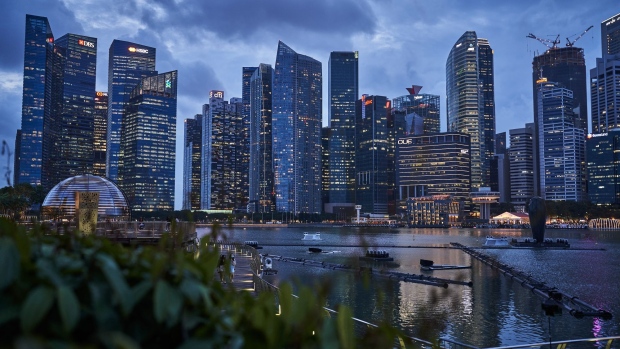Jul 22, 2022
Singapore Conducts Fifth Execution in Four Months, Amnesty Says
, Bloomberg News

(Bloomberg) -- Singapore carried out its fifth execution for drug-related crimes in less than four months, Amnesty International said, while neighbors Malaysia and Thailand move to relax punishments for similar offenses.
Nazeri bin Lajim was hanged Friday for possession of 33.4 grams (1.2 ounces) of heroin a decade ago, the rights group said, as Singapore continued to press ahead with executions in March after a more than a two-year lull during the pandemic. That compares with four in all of 2019 and 13 the prior year, according to Amnesty data.
“This relentless wave of hangings must stop immediately,” Amnesty death penalty adviser Chiara Sangorgio said in a statement. “The use of the death penalty in Singapore, including as mandatory punishment for drug-related offenses, violates international human rights law and standards.”
The Singaporean Ministry of Home Affairs didn’t immediately respond to a request for comment Friday.
The executions come after the government in neighboring Malaysia said last month that it would move toward abolishing mandatory death sentences for 11 offenses, including drug crimes. Meanwhile, Thailand formally decriminalized marijuana in June.
Singapore has been a staunch defender of capital punishment, which its Home Ministry says is more effective in deterring serious crimes than life imprisonment. The ministry argues the law has resulted in a 15-19% reduction in the chance that a person would choose to transport marijuana above the threshold that would result in a capital sentence.
More than 400 prisoners have been hanged in the Southeast Asian nation since the introduction of the mandatory death penalty in 1990, according to Amnesty. That includes the execution in April of an intellectually disabled man for trafficking some three tablespoons of heroin into the country. The courts found that he had the “working of a criminal mind.”
Law and Home Affairs Minister K. Shanmugam told the BBC in an interview last month he didn’t “have any doubts” about the policy. “It’s imposed because there’s clear evidence that it is a serious deterrent for would-be drug traffickers,” Shanmugam said.
©2022 Bloomberg L.P.